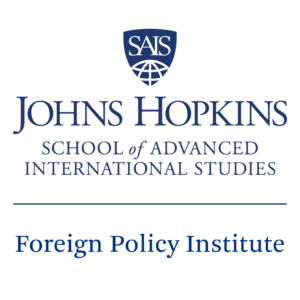A weekly round-up of leading business/economic stories shaping East Asia from the pages of the regional press – April 19
Asia Growth – “Growth in Asia is expected to stall at zero percent in 2020 due to the COVID-19 pandemic — the lowest growth since the 1960s, the International Monetary Fund said on Wednesday. ‘This is a crisis like no other. It is worse than the Global Financial Crisis, and Asia is not immune,’ Chang Yong Rhee, director of the IMF’s Asia and Pacific Department, said at a virtual press conference. The region’s growth prospect for 2020 is the worst in almost 60 years, including during the Global Financial Crisis (4.7 percent) and the Asian Financial Crisis (1.3 percent), Rhee said,” Xinhua/Shangha Daily reports
South Korea Election – “The ruling bloc achieved a sweeping victory in the general election, Wednesday, winning nearly three-fifths of the 300 National Assembly seats. The landslide win has made the Democratic Party of Korea (DPK), and its ‘satellite’ offshoot Civil Together, an unprecedented political presence that will be able to pass any bill without the cooperation of other parties ― except for constitutional revisions that require a two-thirds majority ― a huge boost for the Moon Jae-in administration,” Korea Times reports
Philippines Economy – “S&P Global Ratings expects the Philippine economy to shrink by 2% this year — a sharp revision from its 4.2% growth estimate given in March — as the world comes to grips with the human and economic price of the novel coronavirus pandemic. The debt watcher had projected a baseline 6% gross domestic product (GDP) growth for the country in December, long before the coronavirus disease 2019 developed into a global health crisis,” Business World reports.
Malaysia Airways/Air Asia – “Merging money-losing state carrier Malaysia Airlines Bhd with budget airline AirAsia Group Bhd is one of the options to ‘save’ them as the Covid-19 crisis batters the industry, Malaysia’s second-most senior minister Datuk Seri Mohamed Azmin Ali told Reuters on Friday,” Reuters/Edge Markets Malaysia reports.
S. Korea Jobs – “Total job losses hit a 10-year high in March, while the number of people on leave jumped by a record in percentage terms, as Covid-19 shuttered factories and stores, forced the clearing of office buildings and laid waste to key industries. According to Statistics Korea on Friday, the number of people employed in March totaled 26.6 million, down 195,000 on year. In May 2009, in the aftermath of the global financial crisis, the number of people losing their jobs totaled 240,000,” Korea JoongAng Daily reports.
China/Sinopec – “Sinopec Oilfield Service expected it will have a net loss of 182 million yuan (HK$199 million) for the first quarter this year, compared with a net profit of 188 million a year ago amid the virus pandemic and a plunge in global oil prices,” The Standard reports.
China Aviation – “Airlines in China reported a total loss of 33.62 billion yuan (US$4.8 billion) in the first quarter as the coronavirus pandemic hit travel demand, the country’s aviation regulator said yesterday. In February, the airlines suffered a record loss of 20.96 billion yuan as large parts of the country remained on lockdown amid efforts to curb the spread of the virus,” Shenzhen Daily reports.
Japan/RCEP – “With the new coronavirus pandemic hindering the progress of talks over what would be the world’s biggest free trade pact, Japan may be forced to give up on its plans of reaching an agreement this year. Tokyo is likely to place a top priority on shoring up the nation’s virus-hit economy for an extended period, which would make it more difficult for Prime Minister Shinzo Abe to promote free trade agreements including the Regional Comprehensive Economic Partnership,” Japan Times reports.
Japan Aviation – “Japan’s top airlines are operating a majority of their domestic capacity even though the coronavirus outbreak has left seats on flights mostly empty, amid a lack of clear government directives on the functioning of transport infrastructure in the crisis. ANA Holdings Inc. and Japan Airlines Co., Ltd. (JAL), Japan’s two biggest airlines, have cut around 90 percent of international flights but left their domestic networks relatively intact, industry data showed. The two normally fly around 800 or more domestic flights daily,” Reuters/Asahi Shimbun reports.
Indonesia/Garuda – “National flag carrier Garuda Indonesia is cutting its employee salaries by 10 to 50 percent from this month to June as the company struggles to stay afloat amid pressures from a broad-based slump in traveling activities. Garuda president director Irfan Setiaputra said the company resorted to salary cuts to maintain business sustainability as the coronavirus pandemic has hit travel-related businesses hard,” The Jakarta Post reports.
Thailand/Lion Air – “Thai Lion Air is reducing its workforce again amid the freezing of its business due to the coronavirus outbreak in the country. The airline informed its staff in a statement last week that almost 120 employees with less than a year’s experience would be let go on the understanding that they would be the first priority for recruitment in the future if business returns to normal,” Bangkok Post reports.
Indonesia/Bonds – “The rupiah has appreciated for the last few days along with foreign capital inflow to government bonds, reflecting a return of investors’ confidence in the country’s financial stability amid the Covid-19 pandemic, Bank Indonesia Governor Perry Warjiyo said on Friday. Rupiah strengthened 1.8 percent to trade 15,503 against the US dollar on Friday, according to Jakarta Interbank Spot Dollar Rate. The currency had gained 4.5 percent so far this week and moved away from its record-low position early this month when it traded at 16,741 against the US dollar,” Jakarta Globe reports.
South Korea Election – “Did South Korea just have the first Covid-19 government referendum election? On Wednesday, South Korea’s liberal ruling party won a landslide victory in a general election, winning the kind of majority not seen inmore than three decades. Early analysis points to the high marks President Moon Jae-in received from his government’s handling of the coronavirus crisis,” The New Silk Road Monitor reports.
China Economy – “China’s economy shrank in the first three months of 2020 compared with a year earlier, the first such contraction since Beijing began reporting quarterly gross domestic product in 1992. The collapse foreshadows the pain expected in the U.S. and around the world as the coronavirus pandemic shuts borders, halts business activity and cripples global supply chains,” Wall Street Journal reports.
Thailand Contraction – “According to IMF latest projection, Thailand could stand as the worst performer among its Asean peers with a staggering drop of 6.7% of its GDP. Singapore would be the second worst performer with a -3.5% GDP forecast for 2020,” Thailand Business news reports.
Vietnam Banks – Fitch Ratings has lowered the outlook of five banks in Vietnam due to the negative impacts of the coronavirus pandemic. It revised the outlook for Vietcombank, Vietinbank and ANZ Bank (Vietnam) from ‘positive’ to ‘stable,’ and for the ACB and MB from ‘stable’ to ‘negative.’ The revision follows the blows taken by Vietnam’s economy from the pandemic, with a decade-low growth of 3.8 percent in the first quarter, and the State Bank of Vietnam having to cut its policy rates and directing banks to extend debt relief to affected borrowers,” VN Express reports.
Cambodia Aviation – “Vietnam Airlines has sold its 49 per cent stake in national flag carrier airline Cambodia Angkor Air to undisclosed buyers, State Secretariat of Civil Aviation (SSCA) spokesman Sin Chansereyvutha told the Council of Ministers on Thursday. Also included in the sale were five A321 aircrafts with a total liquidation value of $37 million,” The Phnom Penh Post reports.
Singapore Exports – “Singapore’s non-oil domestic exports (Nodx) did the unexpected in March by jumping 17.6 per cent, albeit from a low year-ago base. Economists polled by Reuters were expecting exports to drop 8.9 per cent, with more and more countries enforcing a lockdown due to the Covid-19 outbreak and restrictions to business activity,” Singapore Straits Times reports.
Myanmar Banks – “Thailand’s Kasikornbank is planning to expand into Myanmar’s retail market with a focus on digital services. The Central Bank of Myanmar on April 9 approved the Thai bank’s acquisition of a 35 percent stake in Ayeyarwaddy Farmers Development Bank (A Bank), making it the first foreign commercial bank to take a stake in a local lender. A Bank is the second Myanmar bank to welcome foreign shareholders,” Myanmar Times reports.


